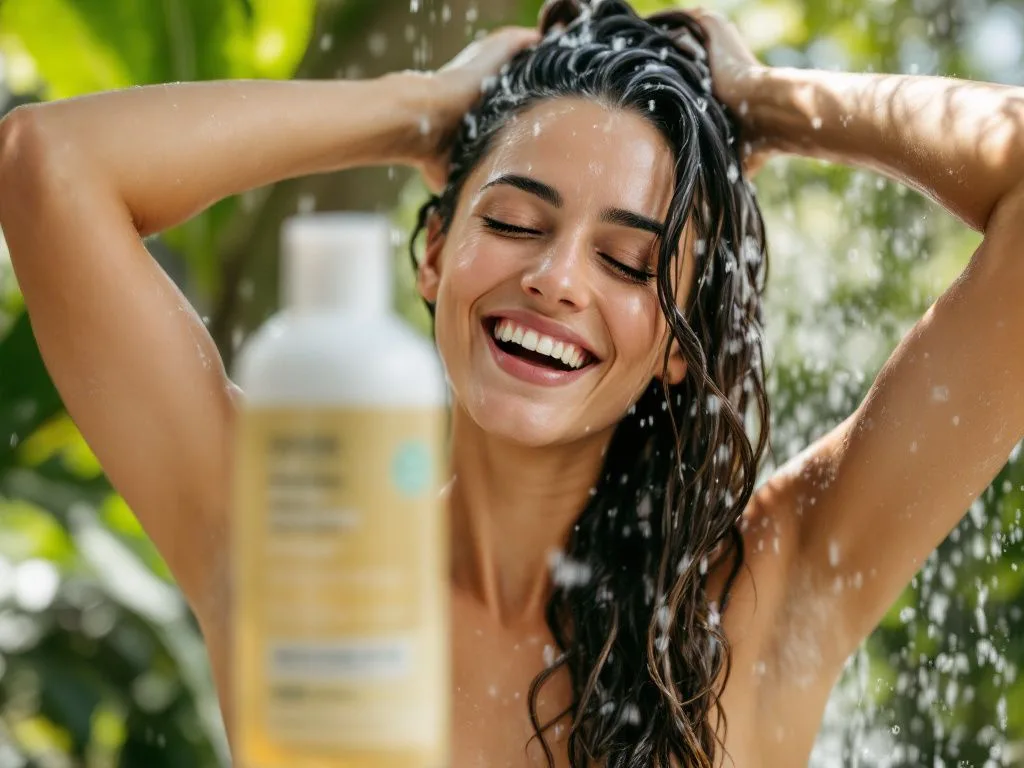
You’ve probably noticed it. Those little labels screaming “sulfate-free” and “no parabens!” from the hair care aisle. You might have even paused and thought to yourself, “Are these things really that bad?” or maybe even wondered if it’s all just marketing fluff. You’re not alone. Let’s leisurely walk through what parabens and sulfates are all about, and why steering clear of them might just make your hair flip-worthy all day long. Trust me, it’s worth one good chat.
What Are Parabens and Why the Fuss?
Simply put, parabens are a group of synthetic compounds commonly used as preservatives in cosmetics and personal care products. Their job? Stop the nasty bacteria and mold from growing inside that lovely shampoo bottle, prolonging its shelf life. Sounds helpful, right? However, there’s a bit more to the story.
The Downside of Parabens
Here’s where it gets a tad bit complicated. Research suggests that parabens can mimic estrogen, the primary female sex hormone. This imitation can disrupt the normal hormone functions in the body, potentially contributing to a variety of issues. Yikes, right?
Scientists have spotted parabens lingering in breast cancer tissues, though the link to cancer isn’t confirmed yet. On the other hand, the environmental impact isn’t debated as much; parabens are found in soil, water, and even in the bodily fluids of creatures living miles away from urban life. That’s one impressive travel itinerary for a beauty product preservative, don’t you think?
To Paraben or Not to Paraben?
Deciding whether to use parabens isn’t always black and white. While they’re incredibly good at their job, avoiding them could mean possibly dodging potential health risks, however unproven they might be at this point. Now let’s shift gears to the other hot topic in the room: sulfates.
What’s the Story with Sulfates?
Sulfates like sodium lauryl sulfate and sodium laureth sulfate are infamous. Why? They’re strong detergent agents in shampoos, responsible for creating that rich, sudsy lather we all adore. Yet, beneath those bubbly layers lies a potential downside.

The Case Against Sulfates
Sulfates can be a little harsh, stripping your hair of its natural oils—a bit like a kid left alone with a plate of cookies. Not only can your hair be left dry and straw-like, but your scalp might react badly too, causing irritation and itching.
Not everyone is at war with sulfates; some scalps handle them just fine. But for those with dyed hair or sensitive skin, sulfates could ignite the need for constant moisturizing and special care just to rebalance what’s lost.
Benefits of Avoiding Parabens and Sulfates
By now, you might be toying with the idea of going sulfate-free and avoiding parabens—seriously, give it a try! Here’s what you could be signing up for:
- Gentler on Sensitive Skin: Say goodbye to unwanted irritation. Paraben and sulfate-free formulas can be kinder on the skin, reducing reactions.
- Healthier Hair: Without sulfates, hair can retain its natural moisture and oils, leading to healthier locks over the long term.
- Better Color Preservation: If you dye your hair, sulfate-free shampoos could be your newly found savior, keeping the color vibrant for longer.
- Environmental Impact: Less chemicals mean a healthier ecosystem. You’re pitching in for the planet, and that’s no small feat.
Choosing the Right Products: Where to Start?
Okay, so you’re ready to lose the sulfates and parabens but where do you start? The market is bursting with options but fear not. Let’s talk selection:
1. Read Labels Like a Pro
Look out for product labels stating “paraben-free” and “sulfate-free.” Sounds like a given, but knowing what to avoid is a useful skill — methylparaben, propylparaben, sodium lauryl sulfate, and sodium laureth sulfate, just to name a few.
2. Check Reviews and Ingredients

Hop on the product review train. Get ideas from those who share your concerns. Also, gently scrutinizing ingredient lists can be enlightening.
3. Tailor It To Your Hair Type
What works for one person’s hair might not work for another’s. Consider brands catering specifically to your hair type and concerns. Scores of options have you covered, from curly and color-treated to thick or fine strands.
4. Don’t Forget the Patch Test
It’s easy to get over-excited and drench your hair in a new wonder formula. Always do that patch test first, just like when rescuing your hair with box dyes—you’ll save yourself a world of potential discomfort.
DIY Options: Because Why Not?
If you’re not sold on commercially available products, or if you’re feeling a bit alchemical, whip up your personal sulfate and paraben-free potion!
**Apple Cider Vinegar Rinse**
- part apple cider vinegar
- parts water
- A few drops of your fave essential oil for a pleasant scent (trust me, you’ll appreciate it)
Mix these up, pour over your hair after shampooing, and rinse thoroughly. It helps clarify the hair and restores its shine — give it a spin!
Debunking Myths: Clearing the Air
Time to gently bust some myths. Avoid getting caught in the whirlpool of misinformation out there in beauty land.

Are All Preservatives Bad?
Not at all. While parabens have deservedly attracted criticism, some preservatives are crucial to prevent harmful bacterial growth. Look for naturally-derived or gentle synthetics as safer alternatives.
Does Natural Always Mean Safer?
Natural products can also cause reactions—hello, allergic reactions! Every ingredient matters. Whether natural or synthetic, understanding your hair’s unique needs will set you on the safest path.
Will Skipping Sulfates Leave My Hair Less Clean?
Quality sulfate-free shampoos often include gentle cleansing agents. Don’t worry about lackluster lather or less effective results—they get the job done sympathetically with your hair’s needs.
Will It Score a Hole in My Wallet?
Thankfully, as awareness grows, so do affordable options. The luxury of chemical-free doesn’t always equate to a luxury price-tag. Bushwack those assumptions and explore!
Giving Back the Love: Long-term Hair Health
Taking steps to go paraben and sulfate-free is more than pastoral moony bliss, it’s an act of compassionate care for your hair and body. You’re reducing exposure to potential irritants, preserving those loving hues of your nurturing expense into color-treated hair, and tuning in to gentle cleansing.
Circle back to the basics every now and then: nourished insides nourish your outsides. Hydrate, eat what your body thrives on, and consult the professionals for unbiased advice.
Take Away
Navigating the beauty jungle can be an overwhelming maze, especially with labels thrown at you. By picking items truly beneficial for your well-being, and upholding an earth-friendly ethos, you inherently become part of a broader conscientious movement. So the next time you spot “paraben” or “sulfate-free,” you’ll know precisely the why’s and how’s behind those little public declarations. Embrace cleaner – and greener – hair care and revel in healthier splendor. Isn’t it well worth the lather?
Frequently Asked Questions
What are parabens?
Parabens are a group of preservatives commonly used in personal care products such as shampoos, conditioners, lotions, and cosmetics. They help extend the shelf life of these products by preventing the growth of bacteria and mold.
Are parabens safe to use in personal care products?
The safety of parabens has been a subject of debate. While they are generally recognized as safe by regulatory agencies like the FDA, some studies have raised concerns about their potential impact on hormone levels and their possible link to certain health issues. However, more research is needed to fully understand their effects.
How can I avoid parabens in my personal care products?
To avoid parabens, look for products labeled as “paraben-free” or “natural.” Check the ingredient list for names like methylparaben, ethylparaben, propylparaben, and butylparaben. Opting for organic or natural alternatives can also help minimize exposure to parabens.
What are some alternatives to parabens in personal care products?
Alternatives to parabens include other preservatives such as phenoxyethanol, potassium sorbate, and sodium benzoate. Natural preservatives like essential oils (e.g., tea tree oil) and plant extracts are also being used in some products.
References- Parabens in Cosmetics. U.S. Food and Drug Administration.
- What Are Parabens? Are They Safe?. Healthline.
- Parabens. ScienceDirect.
- Parabens: Potential Impact of Low-Affinity Estrogen Receptor Binding Activity. National Center for Biotechnology Information.



Leave a Reply